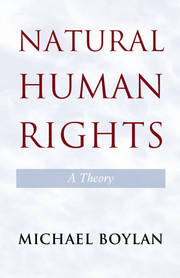Book contents
- Frontmatter
- Dedication
- Contents
- Preface
- Acknowledgments
- Part One Conceptualizing Human Rights
- Overture
- 1 How Do We Talk about Human Rights?
- 2 A Short History of Human Rights in the West
- 3 A Short History of Human Rights in China
- Part Two Justifications for Human Rights
- Part Three Applications of Human Rights
- Glossary
- Bibliography
- Index
- References
1 - How Do We Talk about Human Rights?
Published online by Cambridge University Press: 05 September 2014
- Frontmatter
- Dedication
- Contents
- Preface
- Acknowledgments
- Part One Conceptualizing Human Rights
- Overture
- 1 How Do We Talk about Human Rights?
- 2 A Short History of Human Rights in the West
- 3 A Short History of Human Rights in China
- Part Two Justifications for Human Rights
- Part Three Applications of Human Rights
- Glossary
- Bibliography
- Index
- References
Summary
Open the newspaper: how many times do you see the word “right” or “human right”? I tried this recently and found the word used in many different contexts from talking about politics and policy, to the activities of large corporations, to popular uprisings in the Middle East, to dissidents in China, to welfare economics, to affirmative action, to corporations as people, and even to youth sports uniforms: this in just one daily paper.
Common Usage
Clearly we use the terms right, rights, human rights, and natural human rights in many different ways. One touchstone on English linguistic usage is the Oxford English Dictionary that cites the usage of a word historically. When we look at the word “right” we find the same divergence that we saw in the newspaper:
A standard of conduct
A duty
To which is consonant with justice and goodness or reason – something morally or socially correct, just or honorable
Equitable treatment
The cause of that which is fair or morally correct
A judicial decision
Legal entitlement or justifiable claim (on legal or moral grounds)
An entitlement considered to arise through natural justice
Something that a person may properly claim
Political, civil, or liberties
Miscellaneous usages: map making, the Christian Service (rite), shoes, hunting, etc.
- Type
- Chapter
- Information
- Natural Human RightsA Theory, pp. 9 - 29Publisher: Cambridge University PressPrint publication year: 2014



